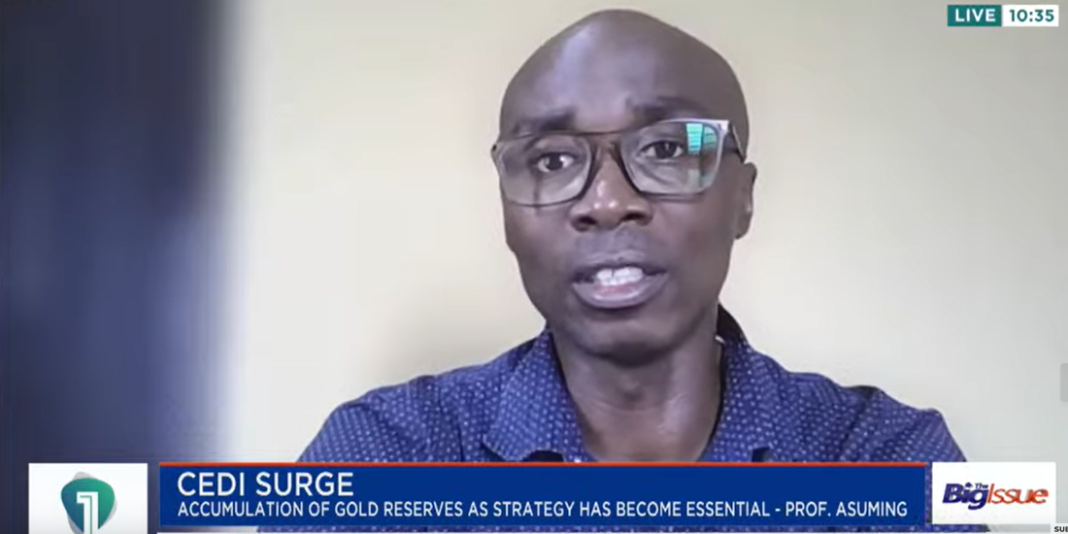Economist Professor Patrick Asuming has called for a fundamental shift in Ghana’s economic strategy, urging policymakers to reduce the country’s reliance on foreign financing in order to achieve long-term currency stability.
According to Professor Asuming, while Ghana has recorded consistent trade surpluses since 2017, the cedi remains vulnerable due to the economy’s structural dependence on external funding.
He explained that despite positive trade figures, the constant need to service foreign loans and the repatriation of profits by multinational companies continue to exert pressure on the local currency, particularly in the first quarter of each year.
“Over the long term what we have to do is to change the financing of the economy. I think the dependence on foreign financing is one of the remaining elements that we have to deal with,” he said.
“If you look, our trade balance has been in surplus since 2017, but within that period we realise that while the trade balance was always a surplus, because the economy is too dependent on foreign financing and we are always servicing loans, we are always paying foreign companies, then obviously in the first quarter when foreign companies have to repatriate, the pressure on the cedi comes,” he explained.
To address this, Asuming advocated for a gradual shift towards domestic sources of financing for Ghana’s long-term development goals over the next five to ten years.
In the short term, he urged the government to implement more practical measures to curb unnecessary imports, particularly food, which he described as a major contributor to Ghana’s trade imbalances.
“While we are doing that, in the meantime, whatever we can do to cut on the import of things that are not necessary for us to import [should be done]. There is absolutely no need for us to be extremely food dependent as we are at the moment,” he added.
Read also
Cedi’s gains driven by fiscal-monetary alignment – Inusah Fuseini
